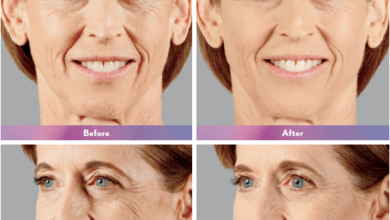Health
6 Best Medical Systems in the World – Choose Best for You

When it comes to healthcare, the quality of medical systems can vary drastically across the globe. Certain countries have managed to create world-class healthcare systems that offer top-notch care to their citizens, often serving as a model for others. In this blog, we will explore the six best medical systems in the world, delving into what makes them stand out in terms of accessibility, quality, innovation, and affordability. Whether you are a healthcare enthusiast or just someone interested in global standards. This analysis will provide valuable insights into the healthcare systems leading the charge globally.
1. Ayurveda: Ancient Wisdom in Modern Healthcare
Ayurveda, an ancient Indian system of medicine, is increasingly recognized as a valuable contributor to holistic health. Unlike conventional medicine, Ayurveda focuses on balancing the body, mind, and spirit through a personalized approach to health and wellness. Its principles emphasize prevention, well-being, and a deep connection to nature.Key Features of Ayurveda:
- Holistic Approach: Ayurveda treats the individual as a whole, taking into account physical, mental, emotional, and spiritual health. It utilizes personalized treatments based on one’s unique constitution (Prakriti).
- Natural Remedies: Ayurvedic treatments often involve the use of natural herbs, diet, yoga, and meditation to promote healing and balance within the body.
- Preventive Care: Emphasizing lifestyle changes and preventive measures. Ayurveda aims to prevent diseases before they occur, reducing the burden on healthcare systems.
- Sustainable Practices: Ayurveda encourages sustainable practices, promoting the use of locally sourced and natural ingredients, aligning healthcare with environmental health.
2. France: A Holistic Approach to Healthcare
France consistently ranks as having one of the best healthcare systems in the world, according to the World Health Organization (WHO). One of the key aspects that make the French medical system stand out is its universal coverage. The healthcare system in France is largely funded by national health insurance. Which is available to all residents and even covers some visitors.Why France Excels:
- Universal Health Insurance: The French system is structured in such a way that it covers 95% of the population, ensuring that everyone has access to medical services.
- Patient-Centric Care: France places a high emphasis on preventive healthcare, which helps reduce the burden of chronic diseases. This approach not only improves quality of life but also reduces the cost of healthcare in the long run.
- Highly Trained Medical Professionals: French doctors and healthcare providers are highly skilled, ensuring top-tier medical treatment.
- Low Out-of-Pocket Costs: Despite the high-quality care, out-of-pocket costs remain relatively low due to the subsidies provided by the government.
3. Germany: Efficient and Well-Funded
Germany is another country that is renowned for its efficient and well-structured healthcare system. The German medical system operates on a dual system of public and private health insurance. Which ensures comprehensive coverage for all its citizens. Every resident in Germany must have health insurance, whether through statutory health insurance (SHI) or private health insurance (PHI).Key Features of Germany’s Healthcare System:
- Bismarck Model: Germany follows the Bismarck model, which means that healthcare is funded by employer and employee contributions, complemented by subsidies from the government.
- High-Quality Medical Infrastructure: Germany has state-of-the-art hospitals and a large network of doctors and specialists that provide high-quality care.
- Focus on Technology: One area where Germany excels is its focus on medical technology and innovation. Many cutting-edge treatments and procedures are first adopted in Germany before they spread to other parts of the world.
- Efficient Waiting Times: Unlike many other countries, Germany is known for its short waiting times for medical procedures and appointments, enhancing the overall efficiency of the system.
4. Switzerland: High Standards and Comprehensive Coverage
Switzerland’s healthcare system is often cited as a model of efficiency and quality. The Swiss system operates on a mandatory health insurance policy where all citizens are required to purchase insurance from private companies. While it is predominantly a private healthcare system. It is highly regulated by the government to ensure that no one is left without medical coverage.What Makes Switzerland’s System Stand Out:
- Universal Health Insurance Mandate: Switzerland mandates that all residents must purchase health insurance, ensuring 100% coverage across the population.
- Quality of Care: Switzerland is known for its exceptional healthcare facilities and highly skilled medical professionals. The country invests heavily in medical research, making it a leader in medical innovations.
- Low Waiting Times: Thanks to the country’s advanced healthcare infrastructure, waiting times for medical services in Switzerland are notably low.
- Affordability for All: Despite having one of the most expensive healthcare systems, subsidies and government support ensure that even low-income residents can afford health insurance.
5. Singapore: A Balanced, Efficient Healthcare System
Singapore is frequently hailed as a leading example of a hybrid healthcare system that combines elements of both public and private healthcare. The Singaporean government emphasizes individual responsibility for health. Which has helped create one of the most cost-effective healthcare systems in the world.Why Singapore’s System Is a Global Leader:
- “3M System”: Singapore’s healthcare is built on the Medisave, Medishield, and Medifund system.. Which helps citizens save for their medical needs, while also providing insurance and financial assistance for those who cannot afford care.
- Low Healthcare Costs: Despite the high quality of medical care, out-of-pocket costs in Singapore remain low due to the efficiency of the system.
- Emphasis on Preventive Care: Singapore places a strong focus on preventive healthcare. Which helps keep medical costs down and enhances the overall health of its population.
- Advanced Medical Technology: Singapore is also at the forefront of medical technology, ensuring that its residents have access to the latest treatments and innovations.
6. Sweden: Accessible and High-Quality Healthcare
Sweden boasts a universal healthcare system that is primarily taxpayer-funded, providing free or highly subsidized healthcare services to its citizens. The Swedish healthcare system is decentralized, with regional governments responsible for most of the healthcare services.Standout Features of Sweden’s Healthcare System:
- Universal Access: All residents in Sweden have access to free or low-cost healthcare, ensuring comprehensive coverage.
- Government-Funded System: Healthcare in Sweden is funded largely by taxes, which means that healthcare services are free at the point of delivery for most citizens.
- Focus on Primary Care: Sweden places a significant emphasis on primary healthcare services.. Which helps to prevent more serious health issues and keeps the overall cost of healthcare manageable.
- Highly Advanced Medical Facilities: Sweden has some of the most advanced healthcare facilities in the world, with well-trained medical professionals and access to cutting-edge technology.




